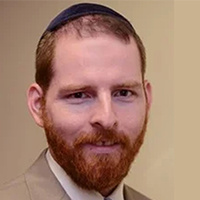New York Felony Lawyer, New York
Sponsored Law Firm
-
 x
x

Click For More Info:
-
Law Office of Mark S. Guralnick
55 Madison Avenue 4th Floor Morristown, NJ 07960» view mapCriminal Defense Law Dedicated. Fearless. Successful.
Mark S. Guralnick and his legal team have helped clients throughout the USA and across the world by applying unparalleled dedication and hard work to each case.
800-399-8371
George A. Vomvolakis
✓ VERIFIEDIf you have been charged with a crime in New York City, Westchester or Long Island you need an attorney who is well versed in local laws and knows how... (more)
Nicholas Gregory Kaizer
✓ VERIFIEDNicholas Kaizer is a nationally -recognized expert in criminal defense, who has appeared in numerous courts around the country. He has lectured attorn... (more)
Gregory G. Smith
✓ VERIFIEDGregory Smith is a practicing lawyer in the state of New York handling civil rights matters.
Ronald Steven Nir
✓ VERIFIEDRonald Nir has represented individuals and corporations in Criminal Cases for more than 30 years. He has tried to completion well over 250 felony a... (more)
Menachem Mendel White
✓ VERIFIEDThe White Law Group has more than 30 years of experience representing clients in local courts. We have helped hundreds of clients through divorces, s... (more)
Darren Deurso
✓ VERIFIEDDarren DeUrso has been in practice for 25 years, including years as an assistant district attorney for Westchester County and in the private practice ... (more)
Kevin Conway
✓ VERIFIEDKevin T. Conway is a local criminal attorney practicing in the field of criminal law. Attorney Conway have over 30 years of experience representing cl... (more)
Zev Goldstein
✓ VERIFIEDAttorney Zev Goldstein specializes his practice in handling traffic violations and driving-related crimes such as speeding, DWI/DUI, Aggravated Unlice... (more)
 Mark Guralnick Morristown, NJ
Mark Guralnick Morristown, NJ AboutLaw Office of Mark S. Guralnick
AboutLaw Office of Mark S. Guralnick Practice AreasExpertise
Practice AreasExpertise









